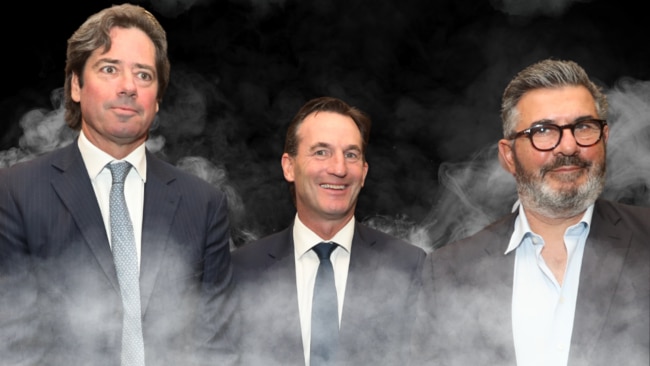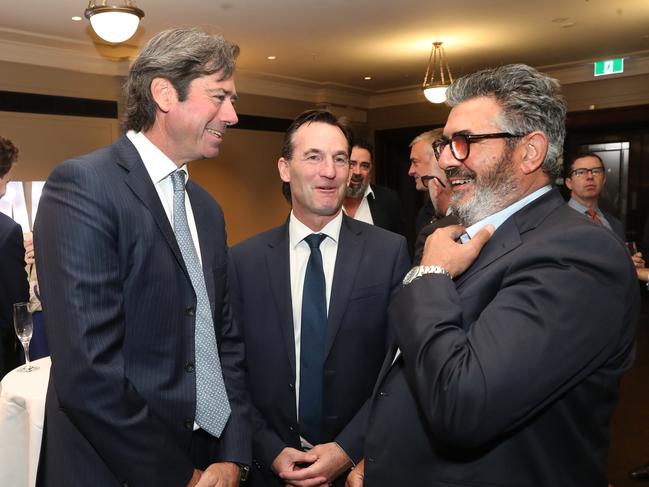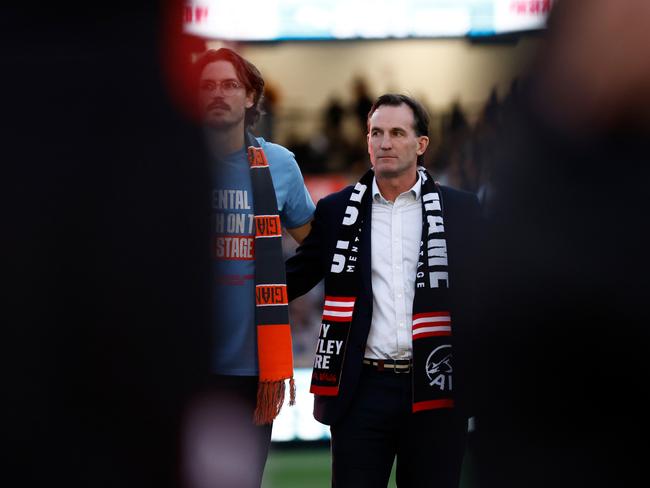Warner: AFL’s three drug testing regimes don’t pass the pub test
Since 2005, the AFL’s drug testing policy has WADA-approved game day testing regime, a three-strikes policy regime and – as revealed this week – another regime from club doctors. It doesn’t pass the pub test, writes MICK WARNER.

AFL
Don't miss out on the headlines from AFL. Followed categories will be added to My News.
The AFL’s illicit drugs policy has had hairs all over it since its inception in February 2005 by then-AFL boss Andrew Demetriou.
Demetriou initially refused to sign a revamped global WADA code on drug use in sport, preferring the AFL’s homegrown testing policy which he described as “probably the most vigilant of any sport in the world”.
But failure to become WADA-compliant would have come at a heavy cost for the AFL.
Federal funding, infrastructure cash grants and even access to publicly funded stadiums such as the MCG and SCG would have been withdrawn because the Australian Government is also a signatory to the WADA code.
Demetriou folded for one of the few times in his life and consequently football has operated under both drug codes ever since.
We’ve known for years that Sports Integrity Australia (on behalf of WADA) conducts game-day testing in search of performance-enhancing substances.
We also know that players are regularly tested away from competition under the league’s three-strike illicit drugs policy.
The policy has been spruiked as a “tough” check against brazen partying and drug abuse by players.

But on Tuesday, a third testing regime – which subverts the three-strike policy – was exposed.
The revelation that the AFL’s former top medical officer, Peter Harcourt, “facilitated” former Melbourne doctor Zeeshan Arain in conducting secret tests to ensure players did not take the field with illicit substances running through their veins is stunning.
The fact there has been so much secrecy tells us the creators of the third scheme knew that it would not pass the pub test while sitting alongside a supposed hard line approach.
That players and clubs are asked to lie about the reasons for late withdrawals – claiming they are due to injury not failed drug tests – also says it all.
The revelations of a third clandestine testing regime raise so many questions.
Just how many players have been subjected to the same “off the books” tests that former Melbourne medic Dr Zeeshan Arain has exposed?
How many clubs have been and are involved?
How many “fake” injuries or illnesses have been concocted over the years to ensure drug-affected AFL players avoided capture by SIA testers on match day?

And what about those who bet on the result of an AFL match before a player is pulled from a game under false pretences? Should they feel cheated?
What about the integrity of the AFL’s stance on drugs, and of the game itself?
The AFL’s illicit drugs policy has long been suspiciously regarded by some within football as a brand protection and player welfare scheme.
Players are rarely, if ever, publicly exposed, even when registering strikes by the league.
But it’s a far different story on game day, as Melbourne player Joel Smith painfully found out last August when he tested positive to traces of cocaine after a match against Hawthorn, triggering an SIA investigation that has since accused him of trafficking the drug to other teammates.
Independent MP Andrew Wilkie, who dropped the drugs bombshell in Canberra on Tuesday night, is credited with quietly and methodically bringing down Crown Resorts (where coincidentally Demetriou was also a director) and the Hillsong church through his parliamentary investigations.
Now it’s the AFL’s turn to face the Wilkie music.





